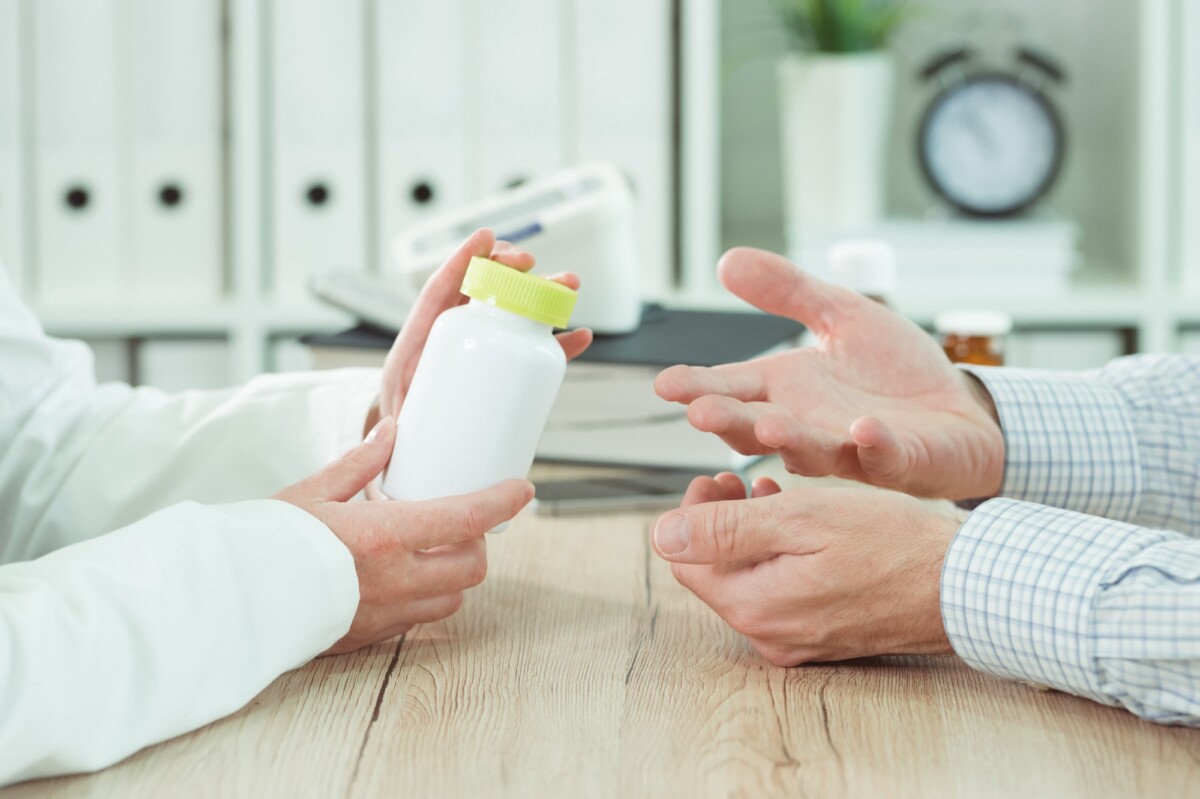Does Medicare Pay for Denture Relining? Find Out Here
Are you tired of dealing with ill-fitting dentures? Wondering does Medicare pay for denture relining can help cover the cost of getting them relined? Look no further! In this blog post, we will explore whether dental care coverage under Medicare and provide you with all the information you need to make an informed decision about your denture maintenance and Medicare benefits. So sit back, relax, and let’s delve into the world of eligible denture services under Medicare!
Introduction to denture relining and its importance for those with Medicare coverage
Dentures are a common solution for people who have lost most or all of their natural teeth. However, as time goes by, changes in the jawbone structure and gum tissue can cause dentures to become loose and uncomfortable. This is where denture relining comes into play.
Denture relining is a simple procedure that involves adding new material to the base of your dentures to improve their fit and stability. It can be done either by adding new acrylic material directly onto the denture or by creating a custom-fitted liner that adheres to the existing denture base.
For those with Medicare coverage, it is important to understand the benefits of denture relining and how it can improve your overall oral health.
Understanding Medicare coverage and its limitations for dental services
Understanding Medicare coverage for dental services can be a confusing and complex topic. While original Medicare (Parts A and B) does not typically cover routine dental care, it may cover certain dental services in specific situations. In this section, we will delve into the details of what Medicare covers and its limitations when it comes to dental services.
Firstly, it is important to note that original Medicare does not cover most routine dental procedures such as cleanings, fillings, or denture relining. This means that if you require these types of services, you will have to pay for them out-of-pocket unless you have other insurance coverage.
However, there are certain circumstances where Medicare may provide coverage for dental services. For example, if you require an emergency tooth extraction as part of a hospital stay, then original Medicare may cover the cost of the procedure. This is because Part A (hospital insurance) covers inpatient hospital stays and any necessary medical procedures during that time.
Similarly, if you need medically necessary oral surgery due to a health condition such as cancer or a facial injury caused by an accident, then original Medicare may provide coverage for the procedure. In these cases, your dentist would need to submit documentation proving the medical necessity of the treatment in order for it to be covered by Medicare.
It is worth noting that even when original Medicare provides coverage for dental services under these circumstances, it will only cover 80% of the approved amount. The remaining 20% would be your responsibility unless you have additional insurance coverage, such as a Medigap plan or a private dental insurance plan.
Another option for getting some coverage for routine dental care is through a Medicare Advantage (Part C) plan. These plans are offered by private insurance companies approved by Medicare and often include extra benefits such as vision, hearing, and sometimes even limited dental coverage. It’s important to review each plan carefully to determine which one best fits your needs and budget.
While original Medicare does not typically cover routine dental care, there are certain situations where it may provide coverage for dental services. However, these circumstances are limited and usually require the treatment to be deemed medically necessary. It’s important to carefully review your Medicare coverage and consider additional insurance options if you require routine dental care.
Explaining how Newmedicare can help navigate Medicare’s rules and regulations
Navigating Medicare’s rules and regulations can be a daunting task, especially when it comes to understanding coverage for specific procedures such as denture relining. That’s where new Medicare comes in – a reliable resource that helps individuals understand and navigate the complex world of Medicare.
First and foremost, new Medicare provides in-depth information on what is covered by Original Medicare (Part A and B) and Medicare Advantage plans (Part C). This includes detailed explanations of deductibles, coinsurance, and out-of-pocket costs. Our team of experts also breaks down the different types of dental services that are covered by Medicare so you can have a clear understanding of what your benefits include.
One aspect that sets Newmedicare apart is our easy-to-use online tools. We offer an interactive tool that allows users to search for specific procedures, like denture relining, to see if they are covered under their plan. This saves time and effort compared to sifting through lengthy documents or contacting multiple representatives from different insurance companies.
In addition to providing information on coverage, Newmedicare also educates individuals on the rules and regulations surrounding Medicare. For example, did you know that Original Medicare does not typically cover routine dental care? However, there may be exceptions if the dental service is medically necessary due to an underlying health condition. Our team can help you navigate these nuances to ensure you receive the maximum benefits possible.
We understand that everyone’s situation is unique when it comes to healthcare needs and financial resources. That’s why we offer personalized assistance through our customer service hotline. Our trained professionals are available to answer any questions you may have about your plan’s coverage for denture relining or any other dental procedure.
Moreover, our website features informative articles on various topics related to Medicare, such as enrollment periods, eligibility requirements, and cost-saving tips. We strive to provide comprehensive resources so individuals can make informed decisions about their healthcare options.
New Medicare is dedicated to helping individuals navigate the often confusing rules and regulations of Medicare. We offer a combination of detailed information, user-friendly tools, and personalized assistance to ensure you have a smooth experience understanding your coverage for denture relining and other dental services. Visit our website or contact us today to see how we can help you make the most out of your Medicare benefits.
Does Medicare cover denture relining? Breaking down the specifics of coverage
Medicare is a federal health insurance program that provides coverage for certain medical services and supplies for eligible individuals aged 65 and older, as well as those with disabilities. While Medicare covers many essential healthcare services, many people are unsure about its coverage for dental care, specifically when it comes to denture relining.
Dentures are a common form of tooth replacement for individuals who have lost some or all of their natural teeth. However, over time, the shape of the jawbone can change and cause dentures to become loose and uncomfortable. This is where denture relining comes in – it involves adding new material to the base of the denture to improve its fit and function.
The short answer to whether Medicare covers denture relining is no. Original Medicare (Part A and Part B) does not cover most routine dental care procedures, including denture relining. This means that you will likely have to pay out-of-pocket for this service if you have traditional Medicare coverage.
However, there are some exceptions and situations where Medicare may cover some costs associated with denture relining. For example, if your dentist determines that your need for a denture reline is due to an illness or injury related to an accident or trauma, then Medicare may cover part of the cost under Part A (hospital insurance).
In addition, if you have a Medicare Advantage plan (Part C), which is offered by private insurance companies approved by Medicare, you may have some coverage options when it comes to dental care. Some MA plans include additional benefits such as routine dental care, which may cover at least a portion of the cost of denture relining.
It’s essential to check with your specific MA plan provider regarding what services they cover before proceeding with any dental procedures. Keep in mind that even with an MA plan, there may be restrictions on coverage, such as network limitations or annual maximums.
Another option for obtaining coverage for routine dental care, including denture relining, is through a standalone dental insurance plan. These plans are sold by private insurance companies and can be used in addition to original Medicare or MA plans. However, it’s crucial to research and compare different dental insurance options carefully, as they may have varying levels of coverage and costs.
While original Medicare does not cover the cost of denture relining, there may be some exceptions depending on individual circumstances and coverage options through Medicare Advantage or standalone dental insurance plans. It’s always best to check with your specific plan provider to understand the specifics of your coverage for routine dental care procedures such as denture relining.

Alternative options for covering the cost of denture relining for those on Medicare
While Medicare does not typically cover the cost of denture relining, there are alternative options available for those on Medicare who need this procedure. Whether you have Original Medicare (Part A and Part B) or a Medicare Advantage (Part C) plan, these alternative options can help lessen the financial burden of denture relining.
1. Medicaid Coverage:
For low-income individuals on Medicare, Medicaid may be an option for covering the cost of denture relining. Medicaid is a joint federal and state program that provides health coverage to eligible individuals and families with limited income and resources. Some states have expanded their Medicaid programs to cover preventive dental services, including denture relining.
2. State Dental Assistance Programs:
In addition to Medicaid, many states offer dental assistance programs specifically designed for low-income seniors or adults with disabilities who are enrolled in Medicare. These programs can provide coverage for a range of dental services, including denture relining. Eligibility requirements may vary by state, so it’s best to research what options are available in your area.
3. Non-Profit Organizations:
There are also non-profit organizations that provide dental care services at reduced or no cost for individuals on fixed incomes, such as seniors on Medicare. Some examples include Dentistry From The Heart and Mission of Mercy Dental Clinics, which offer free dental care events throughout the year across different locations in the United States.
4. Discount Dental Plans:
Discount dental plans are another alternative option for those on Medicare who need denture relining but cannot afford it out-of-pocket. These plans offer discounted rates at participating providers and can help reduce the overall cost of the procedure by up to 50%. While it’s not technically insurance, discount plans can make necessary dental treatments more affordable.
5. Negotiating With Your Dentist:
Don’t underestimate the power of negotiation. Many dentists are willing to work with patients who have limited income and may offer discounted rates or payment plans for procedures like denture relining. Be honest with your dentist about your financial situation and see if they can offer any solutions that would make the cost more manageable for you.
Tips for finding affordable and quality denture relining services with or without Medicare coverage
Finding affordable and quality dentures and relining services can be a daunting task, especially for those on a fixed budget. But with the right tips and knowledge, you can ensure that you receive the best possible care for your dentures without breaking the bank. In this section, we will discuss some essential tips for finding affordable and quality denture relining services, whether or not you have Medicare coverage.
1. Do Your Research: The first tip is to do thorough research. Start by asking your dentist if they offer denture relining services. If they do, ask about their pricing and what is included in the service. You can also search online for reviews of different dental clinics or inquire with friends and family who have had similar procedures done.
2. Compare Prices: Once you have gathered information from different sources, compare prices to get an idea of the average cost of denture relining services in your area. This will help you determine whether or not a particular clinic is offering an affordable price.
3. Ask About Payment Options: Many clinics offer payment plans or accept various forms of insurance coverage, including Medicare. Be sure to inquire about these options when speaking with different dental providers.
4. Look for Dental Schools: Another way to find affordable denture relining services is by seeking treatment at a dental school near you. These schools often provide discounted rates as students are still learning under the supervision of experienced professionals.
5. Check Out Government Programs: For those without Medicare coverage, there are government programs available that may provide financial assistance for dental procedures such as denture relining. Programs like Medicaid or state-funded health insurance may cover all or part of the costs.
6 . Consider Dental Discount Plans: Another option worth considering is signing up for a dental discount plan through private companies like Aetna or Cigna Healthcare Services Inc., which can significantly reduce out-of-pocket expenses for various dental treatments, including denture relining.
7. Ask About In-House Lab Services: Some dental clinics have in-house lab services, which can save you money on the cost of denture relining. This is because they do not have to outsource the work, which can increase the overall cost.
Conclusion
It is crucial to have a thorough understanding of your Medicare coverage when it comes to denture relining. As we age, our teeth and gums undergo changes that can affect the fit and comfort of our dentures. This is where denture relining becomes essential in maintaining proper oral health and overall well-being.
Firstly, having knowledge about what Medicare covers for denture relining can save you from unexpected expenses. Many individuals assume that their Medicare will cover all dental procedures, including denture relining. However, this is not always the case. Without proper knowledge and research, you may find yourself facing out-of-pocket costs that can be financially burdensome.
Furthermore, regular denture relining helps prevent potential oral health issues such as gum irritation or infection. Ill-fitting dentures can lead to discomfort and difficulty chewing, which can result in poor nutrition and even further health complications.
Additionally, keeping up with regular dental check-ups covered by Medicare can help detect any underlying problems with your dentures early on. If there are any issues With an increasing number of people opting for Newmedicare, your existing set of dentures, a dentist will be able to address them promptly before they worsen.
Moreover, while some people may think that getting new sets of dentures is more cost-effective than frequent relinings, this is not always true. Replacing full or partial sets of dentures can be expensive without insurance coverage or assistance programs like Medicaid or Veteran Affairs benefits.
Understanding Medicare coverage for dental procedures such as tooth extractions or emergency care also plays a vital role in maintaining good oral hygiene throughout our senior years. Inadequate dental care has been linked to various medical conditions such as heart disease and diabetes; thus, it is crucial to prioritize dental health as we age.
It is essential to educate ourselves on the coverage and benefits provided by Medicare for denture relining. By doing so, we can save ourselves from unexpected expenses and maintain proper oral health. Remember to consult your dentist and Medicare provider for any questions or concerns regarding coverage for denture relining.
If you’re over the age of 65 years and want to learn more about Medicare Plan, please visit Newmedicare.





